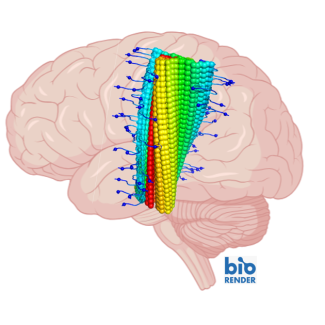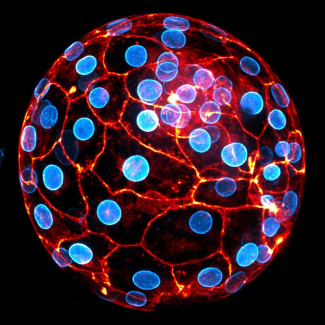
Healthy cells can impact tumour progression during embryonic development
Half of childhood cancers arise during the development of the human embryo, which greatly complicates research into these diseases. The team of Valérie Castellani, CNRS senior researcher at the Mechanisms in Integrated Life Sciences (MeLiS) laboratory (CNRS / INSERM / Claude Bernard Lyon 1 University) has thus developed a model that optimally simulates the human embryonic environment by grafting human cancer cells into a chick embryo. This new method, for which Castellani won the 2018 CNRS Medal of Innovation, makes it possible to explore the mechanisms of metastasis, i.e. how cancer cells spread throughout the body, and to investigate the role of normal cells in the behaviour of malignant ones. Using the chick embryo model, Castellani’s team, in partnership with the Biology and Biotechnology for Health (BioSanté) laboratory (CEA / INSERM / Université Grenoble Alpes) and the Lyon Paediatric Haematology and Oncology Institute (Centre Léon Bérard / Hospices Civils de Lyon1 ), trained their attention on neuroblastomas, paediatric cancers originating in neurons that have yet to mature. The metastatic forms of these cancers are extremely aggressive. Published in Nature Communications (10 May 2022) and led by Dounia Ben Amar, a PhD student cosupervised by CNRS researcher Céline Delloye-Bourgeois, the study found that certain healthy, developing neurons promote metastatic behaviour in the neuroblastoma cells with which they come into contact. It not only shows that normal cells can play a part in tumour progression during embryonic development, but also illustrates the importance of better understanding the unique developmental environment within which cancers of embryonic origin form.

© MeLiS_Equipe Castellani
- 1Oncofactory and the Institute of Biology of the École Normale Supérieure (CNRS / INSERM / ENS-PSL) were also involved in this study.
Environmental cues from neural crest derivatives act as metastatic triggers in an embryonic neuroblastoma model. Dounia Ben Amar, Karine Thoinet, Benjamin Villalard, Olivier Imbaud, Clélia Costechareyre, Loraine Jarrosson, Florie Reynaud, Julia Novion Ducassou, Yohann Couté, Jean-François Brunet, Valérie Combaret, Nadège Corradini, Céline Delloye-Bourgeois, Valérie Castellani. Nature Communications, 10 May 2022. DOI: 10.1038/s41467-022-30237-3


